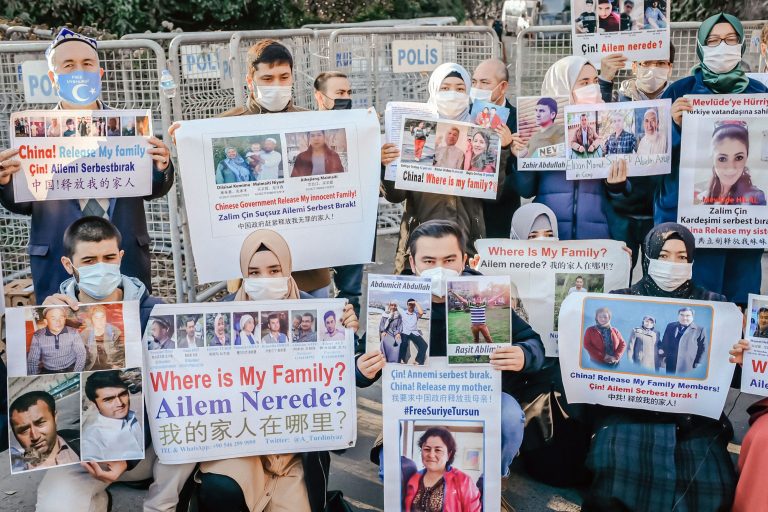Ziba Murat is an Uyghur American who last saw her mother, Dr. Gulshan Abbas, at the Ronald Reagan Washington National airport in 2016. At that time, she implored her mother not to return to Xinjiang amidst news that Beijing was detaining ethnic minorities in the region. However, Abbas did not heed her advice.
“My heart started to beat so fast. I told her not to go… We had already started to hear about the camps being built, but she thought she was safe,” Murat told Reuters.
Dr. Abbas, shortly after arriving in Xinjiang, told her daughter that her passport was seized. She provided no specifics. Daily video calls between the daughter and mother became tense. At times, Dr. Abbas would shake her head and weep for no obvious reason. “I feel so guilty, I think she was trying to send me messages,” she said.
On Sep. 10, 2018, Murat spoke to her mother for the last time.
Dr. Abbas had disappeared less than a week after her sister, Rushan Abbas, delivered a speech on the internment campaign in Xinjiang at the Washington-based think tank Hudson Institute.
Success
You are now signed up for our newsletter
Success
Check your email to complete sign up
Rushan Abbas is a well-known Uyghur activist based in the United States. Murat and Rushan Abbas believe the events are related. Murat is one of the many Uyghurs who has spent years searching for news about relatives detained by the Chinese regime.
According to a report by Human Rights Watch, over one million Uyghurs have been detained in 300 to 400 facilities, which include “political education” camps, prisons, and pretrial detention centers.
Spokesmen for the Xinjiang government claimed at media conferences in Beijing this year that China would assist overseas Uyghurs who are unable to get in touch with their relatives, and asked them to contact Chinese consulates and embassies.
However, relatives say that their appeals have been totally ignored. Murat’s letter to the Chinese embassy in Washington, dated Aug. 5, 2020, that sought details on her mother did not receive any response. “If all we have to do is call the consulate then pick up the phone when we call,” said Murat.
China has dismissed claims that it hinders efforts by Uyghurs to find information regarding their detained relatives.“Certain overseas Xinjiang natives are bewitched or coerced… they deliberately made up lies about the so-called ‘losing contacts’… I can frankly tell all the overseas Chinese nationals from Xinjiang that if you cannot get in touch with your relatives in Xinjiang, you may contact the Chinese Embassy and Consulate. We will work with them to give assistance,” Zulhayat Ismayil, a Xinjiang government spokesman, said in a statement in February.
Murat eventually learned that her mother was arrested on grounds of terrorism and for “disrupting social order.” The formal confirmation came through a one-line statement made by a Chinese Foreign Ministry official at a media conference last year. A non-official source told Murat that her mother had been sentenced to 20 years. The term of the sentence was not publicly confirmed by Chinese authorities.
In a similar incident, Rayhan Asat said that it took four years to learn about the whereabouts of her brother who was detained in 2016. It came from an official source that confirmed that her brother was detained in Aksu, a city in Xinjiang.
“We did everything we could, reached every police station, every state organ to try and find out what happened… We were so confused. Why would he be in Aksu? …I think it is a desire to further uproot people and break their spirit,” Asat told US News.
Some Uyghurs believe that Beijing’s propaganda efforts to discredit accusations of human rights violations against their community is a critical way to learn more about their relatives who are detained by the communist regime.
For instance, Chinese authorities release videos as part of such propaganda efforts that include clips from jailed Uyghurs who proclaim pro-Beijing statements and denounce their overseas relatives.
Murat revealed that she would welcome seeing her mother in such a video even though it would be painful. She just wants to know whether her mother is even alive.














